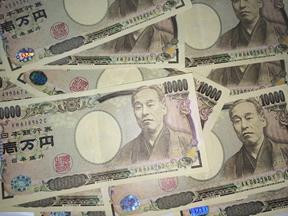The yen carry trade is once again drawing attention from global investors after Japanese Prime Minister Shigeru Ishiba's recent comments jolted markets. Traders are betting on further yen weakness, driven by signals that Japan is not ready for additional interest rate hikes. Ishiba's dovish stance has led to a resurgence in carry trades, where investors borrow low-interest yen to invest in higher-yielding assets, a strategy favored by hedge funds.
The yen, which had been relatively stable, posted its sharpest drop in more than two years this past week. This decline was triggered by Ishiba's unexpected remarks that the Japanese economy was not yet prepared for further monetary tightening. "The new PM is essentially giving us the green light to sell the yen for now," said Nick Twidale, a currency trader at ATFX Global Markets. Twidale, who has traded Japan's currency for 25 years, noted that the carry trade is "back on," fueled by expectations of yen depreciation.
Ishiba's U-turn on monetary policy has blindsided many investors, particularly those who anticipated a more hawkish approach. Just months ago, Ishiba was seen as a potential advocate for tightening policy to combat inflation, but his latest statements have altered market expectations. According to swaps traders, the probability of a Bank of Japan (BOJ) rate hike in December has dropped from 26% to 22% following his remarks.
"The yen carry trade could come back with a boom, based solely on momentum on where the currency is heading," said Shoki Omori, chief desk strategist at Mizuho Securities Co. Omori added that if the BOJ remains dovish and the U.S. economy continues to show strength, the yen could fall further, possibly reaching 155 yen per dollar.
The yen extended its losses in Asia on Thursday, trading as low as 147.24, its weakest level since August 20. These developments have put Japan's $4.4 trillion of offshore assets in the spotlight. While some of these investments are long-term, the current market environment may push capital back home, potentially impacting Japan's economy.
As traders ramp up speculative bets against the yen, many are also looking at U.S. jobs data due on Friday for further clues. Strong U.S. economic data could bolster the dollar, putting even more pressure on the yen.
Despite the recent market turbulence, some analysts believe the BOJ will stick to its gradual hiking cycle. "My money is still on a rate hike in October," said Stefan Angrick, senior economist at Moody's Analytics, in an interview with CNBC. He noted that the BOJ's meeting minutes from September still reflect an optimistic view of the Japanese economy, which could pave the way for further monetary tightening.
However, market sentiment remains divided. On Thursday, BOJ board member Asahi Noguchi expressed support for maintaining accommodative policy for the time being, emphasizing that public expectations around inflation have not shifted significantly. Noguchi's comments reinforced the view that the BOJ is not in a rush to raise rates further, aligning with Ishiba's recent remarks.
Mazen Issa, a fixed income strategist at MRB Partners, also noted that while a rate hike is possible by the end of the year, the BOJ could hold off until early 2025. "We would not rule out another rate hike by the end of this year, but if not, the BOJ will hike by early 2025," Issa said, adding that any further yen weakness would likely be limited.
The BOJ's policy decisions are critical not only for the yen but also for Japan's stock market. Higher interest rates typically lead to a stronger yen, which can negatively impact Japanese exporters by making their products less competitive globally. The coordination between the BOJ and the Japanese government has been closely watched since the spring, as both work to manage the delicate balance between monetary policy and economic stability.
Looking ahead, the BOJ is expected to review interest rates at its upcoming meeting on October 30-31, where it will also release updated forecasts for growth and inflation. Some analysts, such as Ken Matsumoto, macro strategist at Crédit Agricole CIB, believe that the BOJ could still raise rates at the October meeting, provided the economic outlook remains on track. However, Matsumoto acknowledged that the announcement of a general election on October 27 could disrupt these plans.
Kazuo Momma, executive economist at Mizuho, echoed these views, pointing out that developments in the U.S. economy and exchange rates will be crucial in determining the BOJ's next steps. "If the yen stays stable or strengthens, the BOJ will probably wait at least until January 2025," Momma said.






